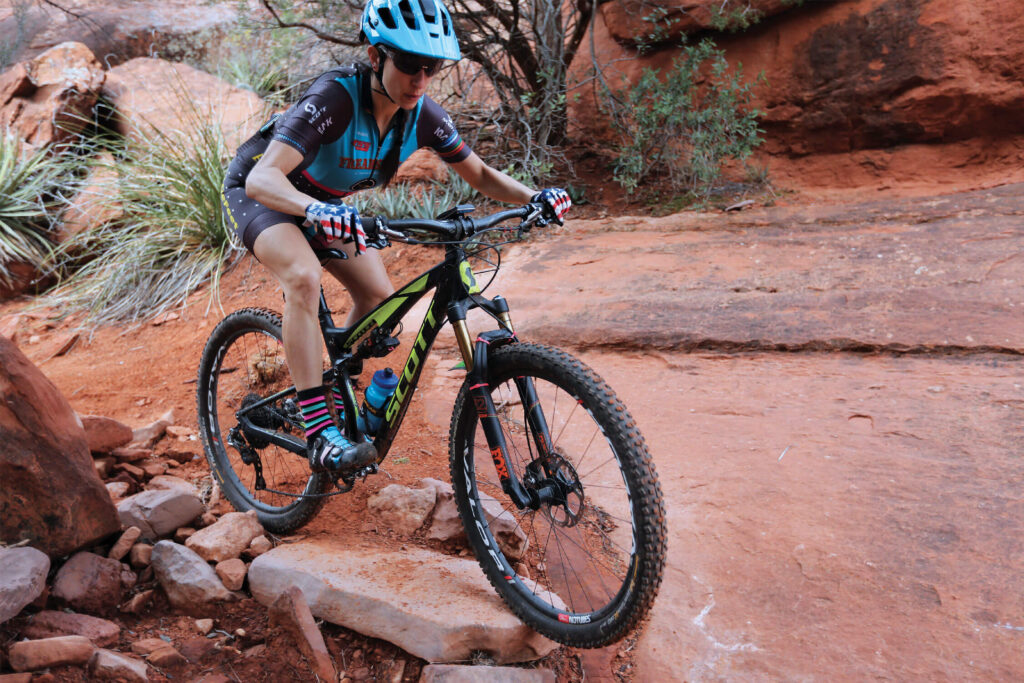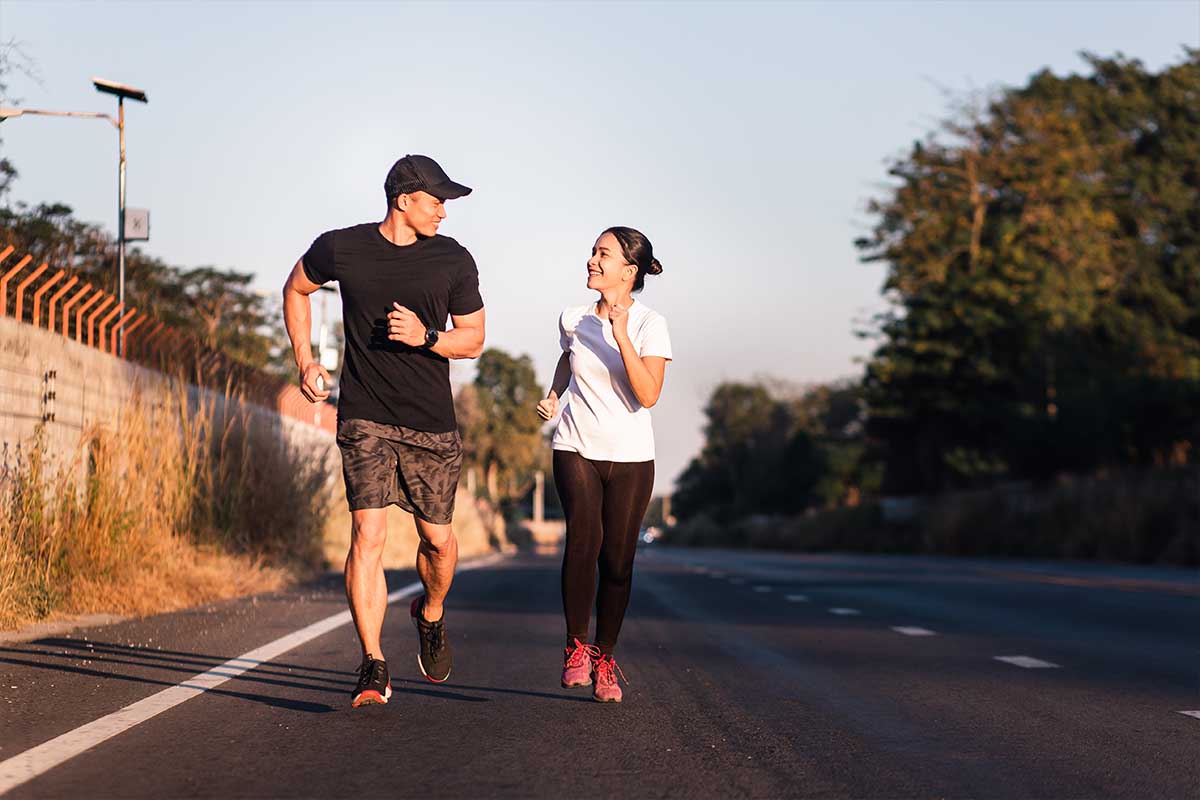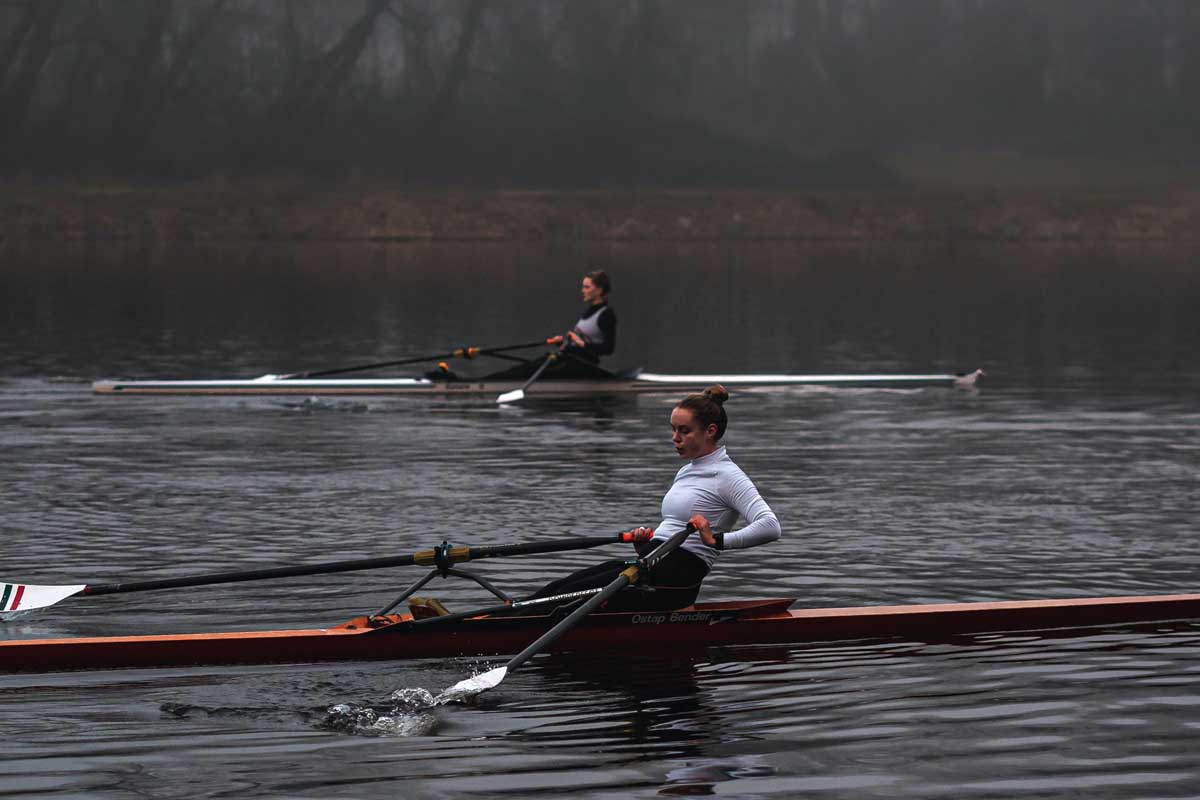Advertisement
‘No Woman Had Ever Finished What I Was Attempting’
The rickety bed creaked as I donned my headlamp at 3:30 a.m. on day nine of my 10-day mountain bike race across the Annapurna Circuit in Nepal. My accommodation was a tiny, unheated room without electricity, situated at 15,000 ft. My bedside water bottle had frozen solid overnight. No woman had ever finished what I … Continued

The rickety bed creaked as I donned my headlamp at 3:30 a.m. on day nine of my 10-day mountain bike race across the Annapurna Circuit in Nepal. My accommodation was a tiny, unheated room without electricity, situated at 15,000 ft. My bedside water bottle had frozen solid overnight.
No woman had ever finished what I was attempting that March of 2012: the Himalayan Yak Attack, the highest mountain bike race in the world—topping out at 17,769 ft.
Advertisement
Facing the unknown
It had been a big deal to sign up. I’d barely traveled internationally before committing to this race. Leading up to it, I was most afraid of the unknown and factors outside my control—things like altitude sickness, mechanical issues with my bike, injuries, or illness.
If something went wrong, my only option would be to turn around and endure the multi-day ride back to Kathmandu by myself. There was no formal support at this race other than at the start/finish and timing areas.
I pushed open the frozen door and went to the start line. I was already exhausted. My bike was strapped to my back with a harness I’d created. I had three hours of hiking ahead of me. I’d have my bike on my back all the way to the summit of Thorong La Pass in the icy darkness, trudging through thigh-high snow (followed by a long descent to the finish). The only realities to embrace were the duality of discomfort and my own tenacity to move forward. The Himalayas strip you of all ego and emotional stability.
Advertisement
Reframing the fear
How did I cope with the unknown and get to this point? Where did I find the courage to fly across the world to this event? I looked back on other challenges—competing in my first marathon, completing my first mountain bike race, earning my master’s degree in electrical engineering, changing careers, moving to Canada—and realized there were common themes.
Like muscles that need to be challenged and worked, so too do building confidence and embracing change. I understood that I could “what if” myself out of getting started on big dreams by ruminating on everything that could go wrong or by being paralyzed by the fear of failure.
That fear of the unknown can hold us all back. It can keep us in jobs, situations, and relationships we don’t like, and it can prevent us from trying something new.
I knew I needed to embrace a mindset of forward momentum by choosing to focus on the things I could control. I chose to focus on what I could do to make my attempt a success. And I chose to look at my experience as one that would help me expand my horizons and grow into the person I wanted to be.
Advertisement
Redefining success
Now, I’d like to tell you that everything went perfectly at 17,769 ft as I passed the cheerful summit prayer flags. But after overcoming the biggest physical challenge of my life, the unthinkable happened.
I had total brake failure as I started my 7,000 ft descent to the finish line. There was no way to repair them, no way for me to get to the finish line except to walk, and absolutely no way I’d be able to finish the 10th day of the race. Tears of anger and frustration poured down my face as I trudged down the mountain. Was this what failure looked like?
On my seven-hour walk, I decided that success was not dictated by the finish line. Success was having the courage to show up. Success was my commitment and preparation for the event. Success was doing my best with what I had and accepting my fate. Success was doing the work, the process. And I was proud of how far I’d come.
Not only did I walk away with some unforgettable life lessons, but I actually did finish and win the race. On the 10th and final day, I was able to use brakes from another rider who had to quit on day nine, and I was able to finish—and win—the Yak Attack. Just for good measure, I challenged and won the race again the following year!
Overcome fear of the unknown
- Focus on what you can control, not what you can’t.
- Embrace imperfect experiences; they may turn out to be even more meaningful than you expected. You may remember these moments most, despite the outcome.
- Remember that emotions, most decisions, and all moments are impermanent.
- Think of change as a muscle: The more you choose to change unwanted situations, the easier making changes becomes.
Plant-tastic protein
World endurance champion mountain biker Sonya Looney is one of many elite plant-based athletes out there debunking the myth that animal-based protein is somehow inherently healthier than plant-based protein. Leading heavyweight boxer Bryant Jennings and Scott Jurek, a record-breaking long-distance runner, are a couple others.*
Protein powders help many athletes hit their protein targets. Here’s what you need to know about the bevvy of vegan protein powders available.
My whey or the highway?
Whey protein is the so-called gold standard and one of the most popular protein supplements in the world. But it’s hardly the only—nor the best—protein option out there.
When it comes to muscle strength, a recent study noted “no statistical difference” between whey and pea protein. Similar research found no significant difference between whey and rice protein.
And that’s just the tip of the iceberg lettuce.
Hemp protein
It’s rich in omega-3s, which may reduce exercise-related inflammation and soreness. Researchers also note that hemp protein is easier for our bodies to digest than protein from many other grains, nuts, and pulses.
Pea protein
It’s allergy friendly for those who are sensitive to the most common food allergens. Pea protein is also just as easy for your body to absorb as many animal-based proteins.
Rice protein
This protein powder has a neutral flavor that makes it perfect for adding to smoothies and shakes. It’s also budget friendly.
Soy protein
Soy contains all the amino acids you need, making it one of the few vegan proteins that are truly “complete” (not an issue if you eat a varied plant-based diet). Nearly all North American-grown soy is genetically modified, so look for a non-GMO or organic label.
Taste the rainbow
We could go on and on. There’s lentil protein (it’s high in iron, a mineral that women who exercise struggle to consume in adequate amounts), chia seed protein (it’s high in fiber, which aids digestion), and more.
Every option has unique benefits, but overemphasizing just one type of protein can lead to unexpected nutritional drawbacks. Instead, eat a variety, either by switching up the main protein powder in your shakes or by choosing a convenient premade blend of different protein powders.
You may also want to consider these options to enhance your shakes:
- Sprouted protein: Sprouting can improve nutrient quality and digestibility.
- Fermented protein: Fermentation may boost bioavailability.
- Protein with digestive enzymes: Some products contain added enzymes to help your body to better process the protein you’re eating.
Sonya Looney is a world champion professional cyclist, podcast host of The Sonya Looney Show, keynote speaker, and founder of the apparel brand Moxy & Grit. sonyalooney.com
Sonya Looney went 100 percent plant based in the summer of 2013, and since then, she’s been crowned the World Solo 24 Hour Mountain Bike Champion (yep, she biked for 24 hours straight), won numerous other races, and set course records. Check out her new website on all things plant based: plantpoweredtribe.com.




